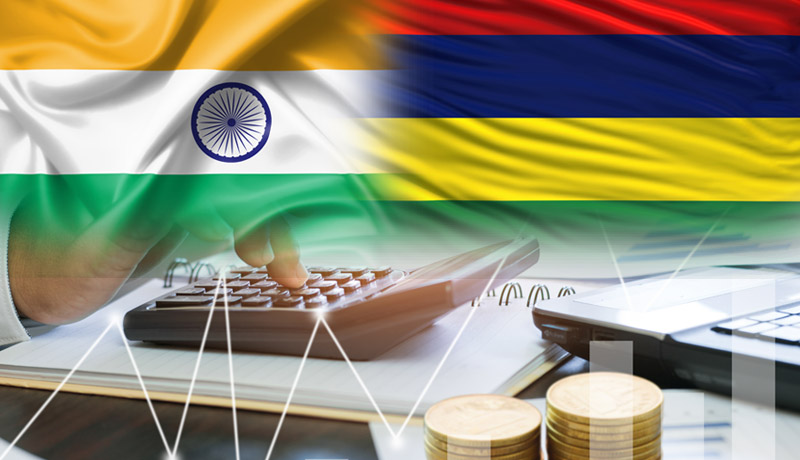India-Mauritius Amend Tax Treaty, Introduces PPT

India-Mauritius Amend Tax Treaty, Introduces PPT
India enhances bilateral relations with Mauritius by amending the Double Taxation Avoidance Agreement to align with BEPS standards: A complete overview
- Authors
- Last Updated
- Tags
- Last Updated
- Tags
Share
Table of Contents
- Authors
- Last Updated
- Tags
India and Mauritius have amended the India-Mauritius Double Taxation Avoidance Agreement (DTAA) by way of protocol dated on March 07, 2024, to include a Principal Purpose Test (PPT) in the pact. The introduction of PPT aims to curtail tax evasion by ensuring that treaty benefits are granted only for transactions with a genuine purpose.
Background
The extant India-Mauritius DTAA, which came into force on April 1, 1983, was amended by way of the protocol signed on May 10, 2016, wherein largely the source country taxation rights were enhanced, and the Limitation of Benefits (LOB) clause was included in addition to the Exchange of Information (EOI) and Assistance in Collection of Taxes related provisions. One of the most significant amendments was regarding the provision of taxation rights to the source country regarding capital gains on the sale of shares acquired on or after April 01, 2017. While the investments made prior to April 01, 2017, were grandfathered, and the sale of shares continued to benefit from the capital gains tax exemption under the Tax Treaty regardless of when such shares would be sold. Notably, no anti-abuse conditions were introduced in the Tax Treaty in 2016.
The 2016 protocol did not include the BEPS-related changes and, to recollect, Mauritius was a part of the list of DTAAs, as notified by India, to be amended through a multilateral instrument (MLI), while India was not notified by Mauritius under its list of DTAAs for MLI purposes. Accordingly, India-Mauritius DTAA was not subject to amendment in line with MLI under the BEPS framework.
In a press release dated July 10, 2017, Mauritius announced that for the DTAAs which are not covered by the MLI, Mauritius would hold bilaterally discussion with the respective treaty partners, including India, to implement the BEPS minimum standards. On March 7, 2024, India and Mauritius signed a protocol to amend the DTAA to align better with the OECD proposals on BEPS.
Introduction of PPT in Tax Treaty
The protocol seeks to insert new Article 27B in the India-Mauritius tax treaty on limitation on entitlement to the treaty benefits in line with the Principal Purposes Test (PPT) under Article 7 – Prevention of Treaty Abuse of the MLI. The introduction of PPT is a measure implemented to align the tax treaty with BEPS Action Plan 6 – ‘Preventing the granting of treaty benefits in inappropriate circumstances which was developed to combat tax evasion. This would mean that taxpayers’ residents in Mauritius can no longer rely on a Tax Residency Certificate (TRC) issued by the Mauritius Revenue Authority to claim treaty benefits. CBDT Circular 789, dated April 13, 2000, had clarified that TRC by Mauritian authorities would constitute sufficient evidence of residence to claim benefits of the tax treaty.
Circular 789 is backed by the Supreme Court in the case of UOI v. Azadi Bachao Andolan. With the PPT test now introduced in the India-Mauritius tax treaty, tax authorities in India are likely to look beyond TRC and will have the ability to deny the benefit of the India-Mauritius tax treaty if it is reasonable to conclude that the main intention is to create an opportunity for tax benefit through treaty-shopping. The tax authorities can take a closer look at the structure and assess the intent and commercial rationale before granting treaty benefits. Existing structures/investments from Mauritius will now have to pass through the PPT test.
The 2024 Protocol requires both India and Mauritius to inform each other about the completion of the procedures required by their respective laws to implement the provisions of the Protocol. Once both nations have issued notification, the 2024 Protocol will enter into force on the date of the latter of the two notifications. The 2024 Protocol shall also enter effect on the same day (viz., the date of the latter of the two notifications) regardless of the date on which the taxes are levied or the taxable years to which taxes relate.
Conclusion
Mauritius has been one of the most popular destinations for investment in India largely because of the tax benefit provided by the tax treaty between the two countries for non-taxability of capital gain from the sale of shares of Indian Company until 2016. This changed in 2016, when capital gains arising from an investment made in an Indian company after April 1, 2017, were subject to tax in India. However, the investments made before April 1, 2017, were grandfathered. The introduction of PPT will potentially open renewed tax scrutiny for millions of dollars worth of foreign investment coming into India through Mauritius.
The newly introduced protocol raises concern regarding whether Article 27B will apply to grandfathered investments sold after the date of the amendment, especially considering the amendment in the preamble of the tax treaty. As a result, there was disagreement concerning the possible impact of Protocol 2024 on already completed transactions and revenue streams that occurred prior to the 2024 Protocol’s effective date. In light of this concern, the Income Tax department, in a social media post on X stated that queries regarding the amended DTAA are premature as the protocol is yet to be ratified and notified under Section 90 of the Income Tax Act, 1961. The department assured us that any queries would be addressed as necessary upon the protocol coming into force.
It is important to highlight that the recently introduced PPT clause under Article 27B is broader in scope compared to the General Anti-Avoidance Rules (GAAR) outlined under the Income Tax Act, 1961. Unlike GAAR triggers, only if the main purpose of the arrangement is to obtain a tax benefit, whereas the PPT may apply if obtaining a benefit of the tax treaty was one of the principal purposes. Further, the GAAR provides a threshold for its applicability which is absent in PPT.
Share
Share



































































